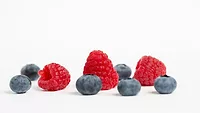FDA to Conduct Unannounced Testing of Frozen Berries for Hepatitis A and Norovirus

Between 1997 and 2016, the U.S. Food and Drug Administration (FDA) reported three hepatitis A outbreaks and one norovirus outbreak linked to frozen berries. In response to the three outbreaks, FDA started sampling frozen berries—strawberries, raspberries, and blackberries—for each hazard as part of the agency’s efforts to protect consumers and ensure food safety.
Consumers use frozen berries as ingredients without cooking them first. Cooking would reduce or eliminate the risk of contamination and foodborne illness. Strawberries, raspberries, and blackberries are delicate and may become contaminated with bacteria or viruses if handled by an infected worker who does not use appropriate hand hygiene, or if exposed to contaminated agricultural water or a contaminated surface, like a harvesting tote. Freezing preserves berries but generally does not kill viruses, which can survive at low temperatures.
FDA’s sampling of frozen berries began in November 2018 and is expected to last for about 18 months, which means it would conclude about a year from now in May 2020.
FDA’s sampling includes domestic frozen berries in retail packaging from processors, distribution centers, warehouses, and retailers. Import samples from ports of entry, importer warehouses, or other storage facilities where foreign goods are cleared for entry into the country are also being collected. In all, FDA plans to collect and test 2,000 frozen berry samples. Facilities will not be notified prior to FDA's arrival to collect samples.
If hepatitis A or norovirus is detected in a sample, FDA will notify the firm of the findings and work with them to take appropriate corrective actions to improve food safety and protect public health. FDA’s authority allows the agency to place a firm on import alert, issue a recall, or issue public warnings.
Results of FDA’s frozen berry sampling will be published in its fiscal year 2019-2020 Frozen Berries Assignment page on a quarterly basis. FDA will also publish an analytical report once the assignment is complete.
Sign up for Food Safety Magazine’s bi-weekly emails!
Subscribe to our podcast: Food Safety Matters!
Looking for quick answers on food safety topics?
Try Ask FSM, our new smart AI search tool.
Ask FSM →








